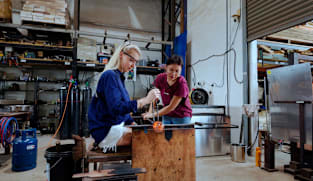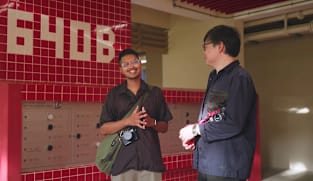Razwana Begum Abdul Rahim on Societies (Amendment) Bill
During the debate on a draft law to tighten the registration process for societies, NMP Razwana Begum Abdul Rahim suggested that those being queried before approval also be made to give a detailed description of their governing body or management committee and their stipulated duties. She asked if the authorities would consider introducing protection for whistleblowers who can report suspicious activities without fear of retaliation. She also said societies classified to be at higher risk of exploitation by bad actors should be given extra support to fulfil financial regulations, including mandatory training for key members on rules and how to counter threats and vulnerabilities. Speaking in Parliament on Wednesday (Oct 4), Assoc Prof Razwana proposed that a free-access database be developed for the public to search for information on societies. This is so that people can make informed decisions on joining societies and help to monitor and report dubious activities. She said that it is now easy to form online groups on digital platforms, which are hard to monitor. And even if a society is formed with good intentions, it could be infiltrated or influenced by new, sometimes anonymous members and end up discussing or promoting dangerous or extreme subjects or ideologies.
During the debate on a draft law to tighten the registration process for societies, NMP Razwana Begum Abdul Rahim suggested that those being queried before approval also be made to give a detailed description of their governing body or management committee and their stipulated duties. She asked if the authorities would consider introducing protection for whistleblowers who can report suspicious activities without fear of retaliation. She also said societies classified to be at higher risk of exploitation by bad actors should be given extra support to fulfil financial regulations, including mandatory training for key members on rules and how to counter threats and vulnerabilities. Speaking in Parliament on Wednesday (Oct 4), Assoc Prof Razwana proposed that a free-access database be developed for the public to search for information on societies. This is so that people can make informed decisions on joining societies and help to monitor and report dubious activities. She said that it is now easy to form online groups on digital platforms, which are hard to monitor. And even if a society is formed with good intentions, it could be infiltrated or influenced by new, sometimes anonymous members and end up discussing or promoting dangerous or extreme subjects or ideologies.



















